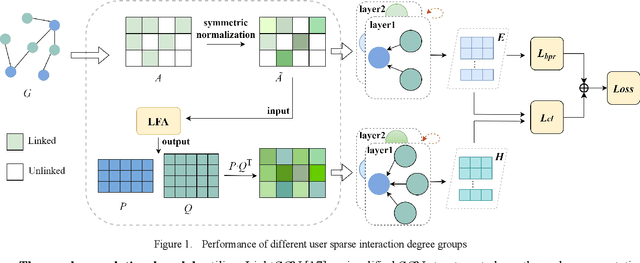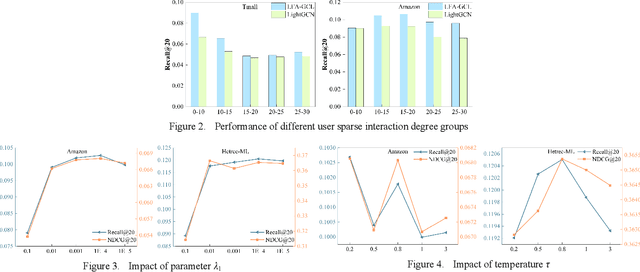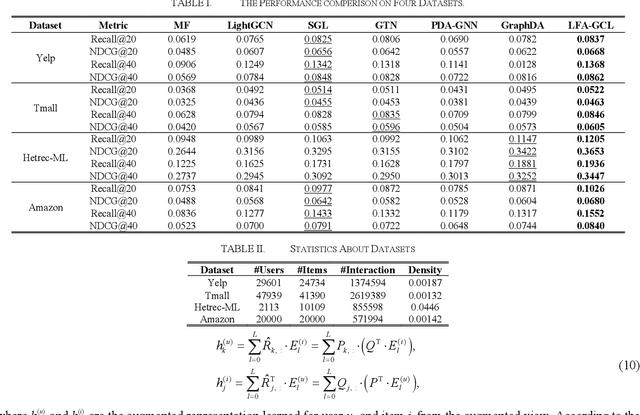Dual-Channel Latent Factor Analysis Enhanced Graph Contrastive Learning for Recommendation
Paper and Code
Aug 09, 2024


Graph Neural Networks (GNNs) are powerful learning methods for recommender systems owing to their robustness in handling complicated user-item interactions. Recently, the integration of contrastive learning with GNNs has demonstrated remarkable performance in recommender systems to handle the issue of highly sparse user-item interaction data. Yet, some available graph contrastive learning (GCL) techniques employ stochastic augmentation, i.e., nodes or edges are randomly perturbed on the user-item bipartite graph to construct contrastive views. Such a stochastic augmentation strategy not only brings noise perturbation but also cannot utilize global collaborative signals effectively. To address it, this study proposes a latent factor analysis (LFA) enhanced GCL approach, named LFA-GCL. Our model exclusively incorporates LFA to implement the unconstrained structural refinement, thereby obtaining an augmented global collaborative graph accurately without introducing noise signals. Experiments on four public datasets show that the proposed LFA-GCL outperforms the state-of-the-art models.
 Add to Chrome
Add to Chrome Add to Firefox
Add to Firefox Add to Edge
Add to Edge